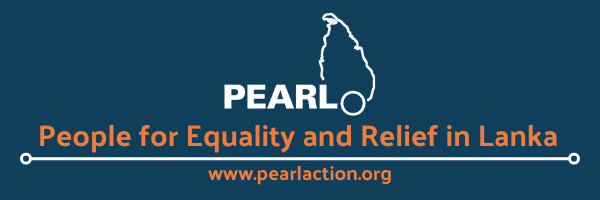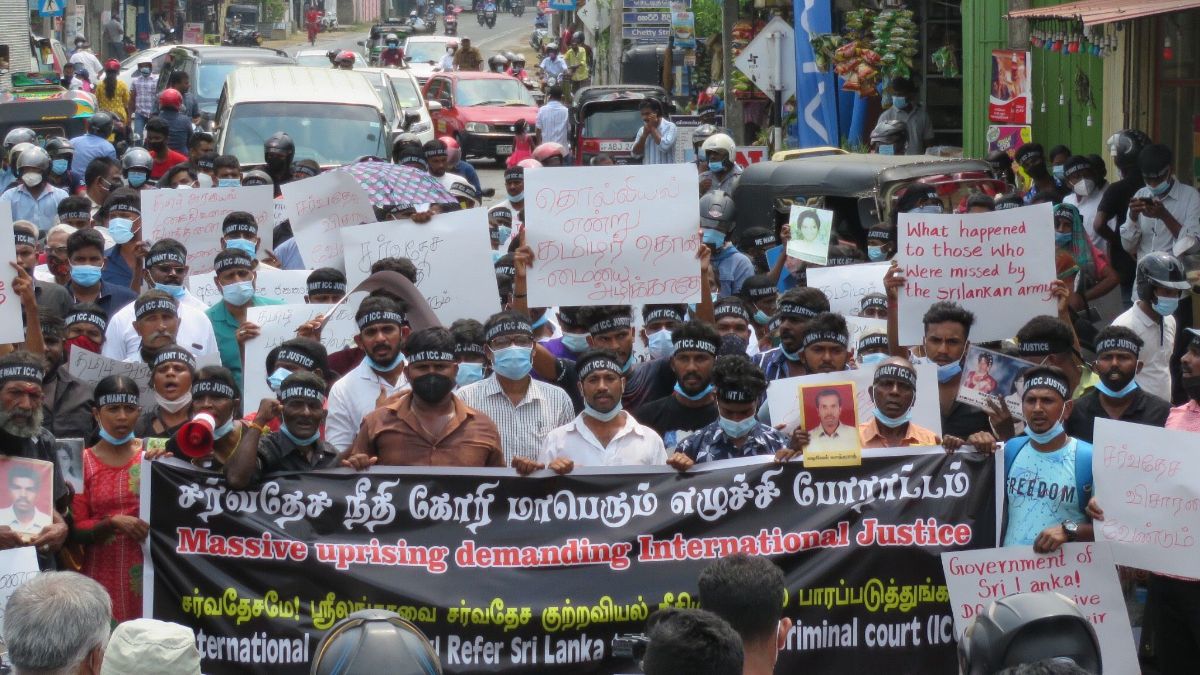Sri Lanka’s Political and Economic Crisis


Tamil protestors asking for justice from the International Criminal Court (Photo: Tamil Guardian, July 2022)
For the Tamil Nation, the Rajapaksas are much more than economically incapable and corrupt – Gotabaya Rajapaksa is the war criminal who oversaw the Sri Lankan military’s atrocity crimes, including genocide, at the end of the war. The cycles of violence Sri Lanka has experienced since independence are perpetuated by the same Sinhala-Buddhist nationalism that elected Rajapaksa with an overwhelming majority of Sinhala votes in 2019 – a war hero rather than a war criminal in the eyes of the South. Rajapaksa’s continuation of policies oppressing Tamil and Muslim communities was ignored or condoned by the majority electorate, and he was valorised as a protector of the Sinhala-Buddhist nation. The whitewashing of the security forces’ crimes has also been an alarming feature of Southern protests and political dialogue over the last few months, and has included a failure to acknowledge ongoing persecution of Tamil and Muslim communities by the security forces. Even as the Presidential Secretariat was taken by protestors, the persistence of the island’s Sinhala Buddhist chauvinism and militarisation was laid bare by protestors platforming other known war criminals from the security forces, including Sarath Fonseka, the army’s notorious commander in 2009. This historic moment must be used to confront Sinhala Buddhist nationalism and address legitimate Tamil grievances at long last.
We, the undersigned organisations, are concerned that at present there have been no indications from protestors or politicians that they are committed to confront Sri Lanka’s ethnocratic political structures and history of atrocities, and thereby the root causes that ultimately led to the present crisis. This will only lead to further instability, violence and economic collapse. We thus call on all stakeholders to ensure that any new government formed commit to the following five actions:
- Draft a new constitution that genuinely restructures the state in a way that respects the secular and pluri-national nature of the island and the right to self-determination, and meaningfully devolves political, economic, land and security powers;
- Ratify the Rome Statute with retroactive effect, and support international prosecutions of atrocity crimes committed during and after the war;
- Demilitarize the North-East to support restructuring the economy by cutting the inflated defence budget, and reallocating spending for economic development;
- Address demands of long-standing protests by families of the disappeared and political prisoners from across the North-East including as a starting point by repealing the Prevention of Terrorism Act (PTA); and
- Immediately cease land acquisitions by national authorities and security forces in the North-East.
Signatories:
Adayaalam Centre for Policy Research
Tamil Civil Society Forum
People for Equality and Relief in Lanka (PEARL)
Tamil Heritage Forum Puzhuthi (Organisation for Social Rights)
Center for Justice and Change
Priests and Religious for Justice and Peace, North-East